Hilary Swank on returning home as an Oscar winner: ‘I can take the high road on a lot of things, but not that’
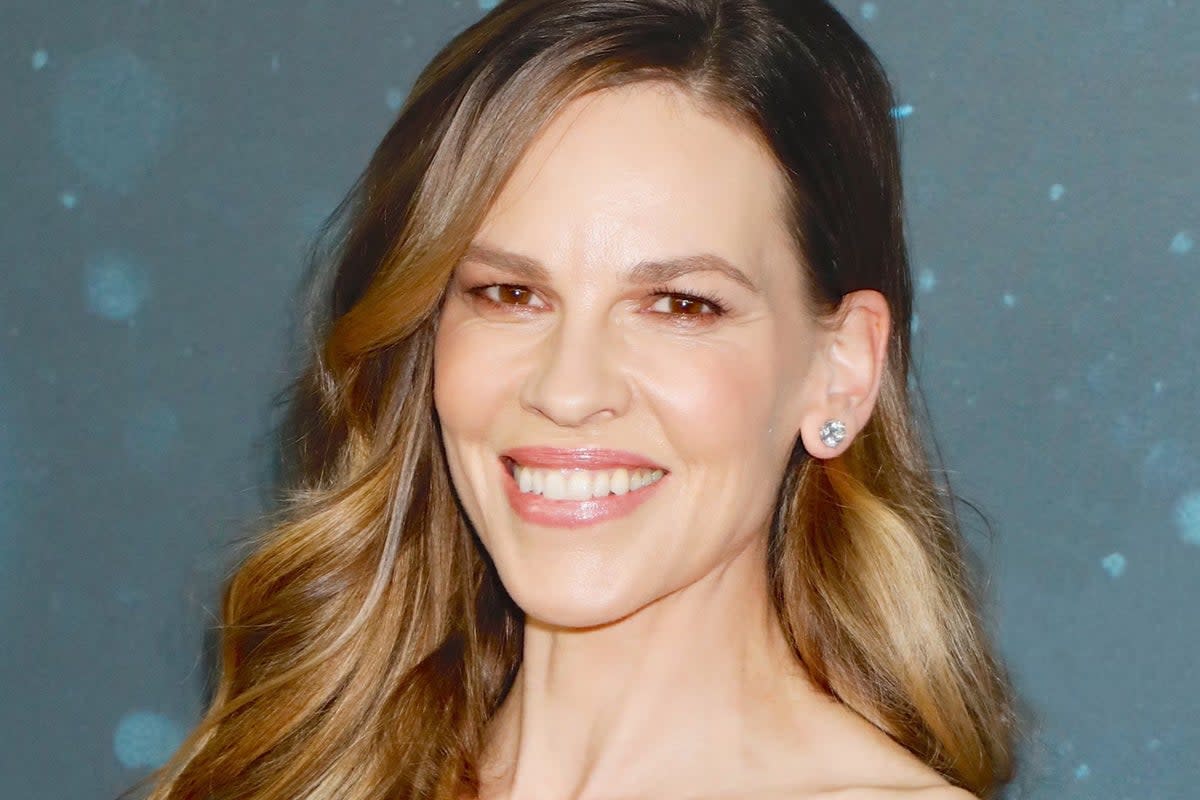
It was the year 2000, and Hilary Swank was in a peculiar position. She had won her first Academy Award, for Boys Don’t Cry, having grasped the coveted statuette on stage in front of an audience that included Jack Nicholson, Diane Keaton, and Morgan Freeman. She was, by all accounts, a star – one that came crashing down to earth when she later went to pick up some medication only to be told: sorry, you don’t have health insurance.
The idea of an Oscar winner with no health insurance sounds ludicrous, I tell Swank over Zoom. The actor, now 49, nods emphatically. “It seems so obvious, right? I’m winning an Academy Award, I’m super famous, it’s all glamorous...” she says. “But I made $3,000 the year I did Boys Don’t Cry, and you had to make $5,000 in order to qualify for health insurance.” Her facialist, too, assumed life had changed overnight. “The next time I saw her, she asked if I had come in a limo! It’s a great reminder that you can’t judge a book by its cover.”
This is a mantra Swank lives by. She made her name playing people who defy expectations, and seeing her now, decades later, makeup-free in a white sweatshirt, glimpses of those characters still jump out at you without warning. In her generous smile, there are flashes of Brandon Teena, the young transgender man she portrayed to devastating perfection in Kimberly Peirce’s Boys Don’t Cry. And there in her eyes is Maggie, the Missouri waitress-turned-boxer of Million Dollar Baby – for which Swank won her second Oscar. (By then, thankfully, she had health insurance.)
Her new film is no different in this regard. Based on a true story, Ordinary Angels sees Swank step into the kitten-heel stilettos of Sharon Stevens, a Kentucky hairdresser who drops everything to help a young girl waiting for a liver transplant and a family unable to pay for it. (Warning: it’s a weepie, keep the tissues on hand.) Silver-tongued and single-minded, Sharon unexpectedly triumphs over the longest odds, rallying the community to help these strangers in need. Think Erin Brockovich but with bigger hair.
The film highlights the importance of kindness, in an age when its presence in society is said to be reaching a nadir. It resonated particularly with Swank, whose father was the recipient of a lung transplant in 2014. For three years, she put her career on ice so that she could be her dad’s live-in carer. It wasn’t a tough decision to make, she tells me, even when people were warning her against it.
“Not hard at all,” she says resolutely. “In fact, it was a blessing and an honour to be able to do that. Not everyone can take the time off to be in that position.” It was only meant to be a year, but one became two, and two became three. “That was fine with me. I wanted to be there as long as my dad needed me,” she says. Even after Swank went back to work, her dad stayed living with her. “My house became his,” she says gently. “It was one and the same.” He died in 2021.
Swank believes her return to the screen has been eased by the simple fact of her longevity as an actor. “I didn’t just have 10 years of a career [behind me], it was 25 years in the business and so I wasn’t really worried about it,” she says. Regardless, Swank has never been the type of actor to work “back to back to back”. She ping-pongs her hands as she says this, playing a mini game of tennis to illustrate the mundanity. “That’s not something I do – not even before my babies.”
Ah yes, her babies! This time last year, a few months shy of her 49th birthday, Swank gave birth to twins: a boy, whom she called Ohm, and a daughter, Aya, who is named after a Syrian refugee she met in Lebanon. In interviews, Swank has called them her “miracles”. Now, beaming in thousands of pixels, she calls motherhood “absolutely extraordinary”. A smile spreads across her face, wide and smooth like jam on warm toast.

Because of the actors’ strikes, which saw Hollywood come to a standstill for 118 days last year, Swank is yet to experience the “working mum” life, but admits that the two little ones snoozing next door have raised the benchmark for what she’ll say yes to. “It’s a double blessing,” she says. “Something will have to check all the boxes in order to make me want to be a part of it.”
To know Swank’s life story is to understand her soft spot for underdogs and outsiders. She’s the daughter of a secretary and a travelling salesman (her dad previously served in the Air National Guard – a military reserve force of the USAF). Swank grew up on the proverbial wrong side of the tracks in Washington. “We call it a trailer park here,” she says. Her bedroom was covered in wood panelling, with a brown Seventies-style carpet and cream curtains. When she turned 12, she plastered posters of Michael Jackson, Debbie Gibson and U2 on the walls.
“I grew up in a way that a lot of people looked down on,” she says. “Unfortunately, it was a lot of the adults around me who taught me that it wasn’t OK, and so I learnt about classism from a very young age – that my circumstances weren’t good enough for some people.”
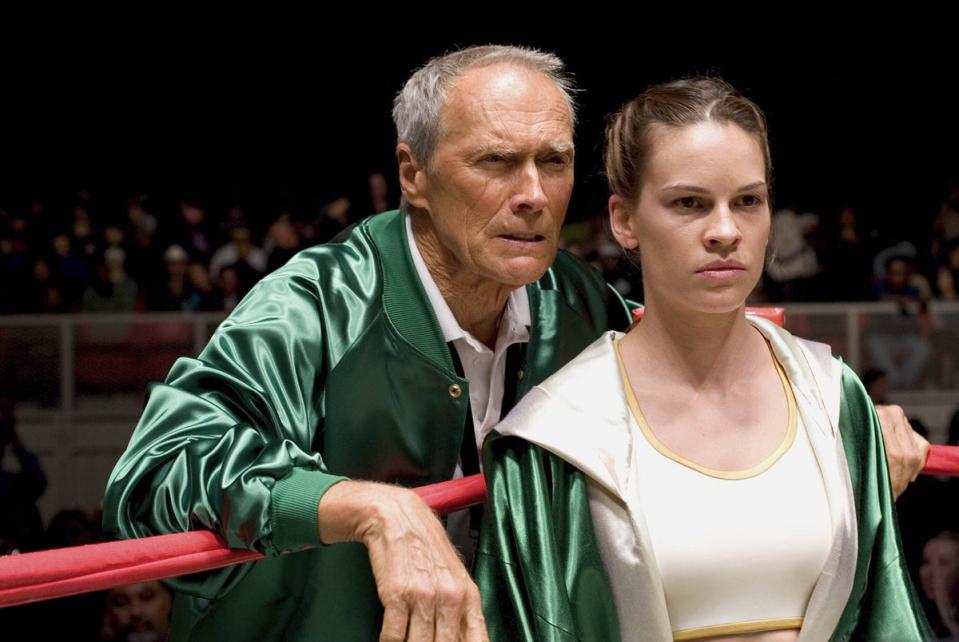
Other kids at school were told by their parents to steer clear of Swank and her brother. Now, those same parents stop to congratulate her in the street. “I run into them when I go home and they say, ‘Oh, we always believed in you!’” She rolls her eyes. “I can take the high road on a lot of things, but in those instances, I say, ‘No, you didn’t. And I’m sorry that whatever you were struggling with didn’t allow you to let me have dinner with your kids, and you sent me home when everyone else was joining the dinner table because I wasn’t good enough. I hope that’s changed for you now.’”
She was 15 when her parents divorced, and her mother made the leap of faith to move them to Hollywood. (Swank had been part of an amateur theatre group in Washington and showed promise as a young actor.) Together they drove to California with $75 in savings, living in their car for weeks until they could afford rent on a small apartment. The risk paid off; it wasn’t long before Swank was landing roles in teen TV shows like Buffy the Vampire Slayer, Growing Pains, and Beverly Hills, 90210.
People aren’t as kind when you’re someone they can’t define
Life changed, though, when she auditioned for the lead role in Peirce’s low-budget indie film Boys Don’t Cry – the true story of a young transgender man murdered in a horrific hate crime – in which Swank is nothing short of astonishing. As the main character, Brandon, Swank telegraphs the joys of new love and transformation as vividly as she does the immense pain of not belonging. Today, that film and Swank’s performance in it are mostly heralded as a watershed moment for representation – but there has been significant criticism over whether it was right for Swank to play a transgender man.
By now, she has her response down pat: an eloquent answer that is at once sensitive to the present day and understanding of the past. No, she would not play Brandon again. Yes, she thinks it’d be great for a trans actor to play the role. No, she does not regret it, because she feels honoured to have started a conversation in a time of silence. But also, yes, she believes actors are actors, and would like to see everyone get the opportunity to play everyone, no matter who they are.
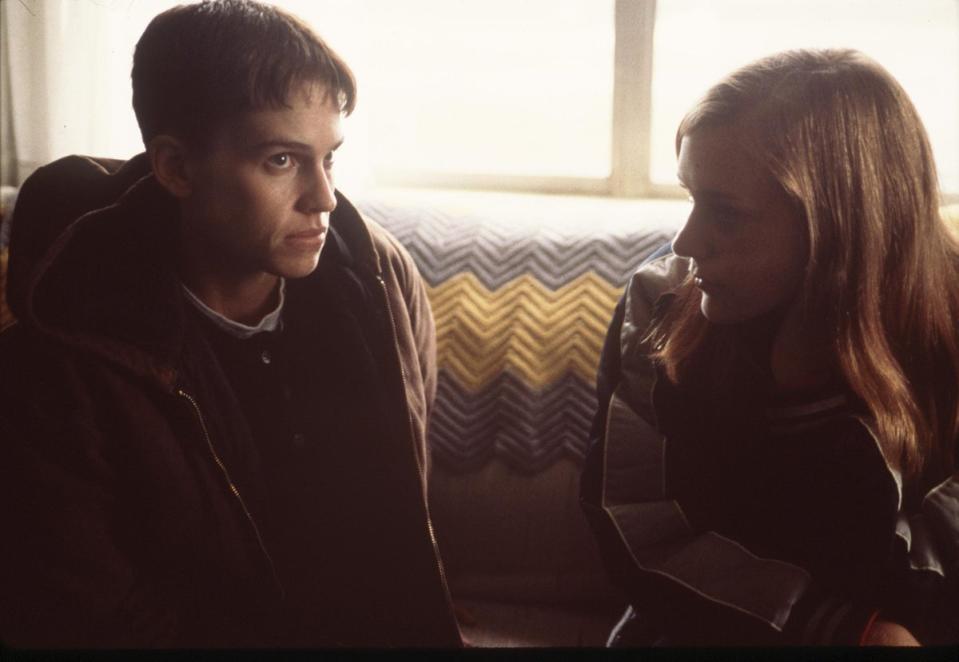
Swank has said words to this effect in several interviews over the years, always in a manner that suggests that, for her, reflecting on the subject is not merely a PR exercise but a genuine probing into her past. Instead, then, I choose to use my minutes to ask a different question: what did she learn in the month she spent living as a man?
“I learnt that people aren’t as kind when you’re someone they can’t define,” Swank replies without a beat. In the month before shooting began on Boys Don’t Cry, she would go out into the world with her hair shorn, her breasts bound, and a sock stuffed in her underwear – speaking in a low register and introducing herself to neighbours as Hilary’s brother James. “That really was sad. It opened my eyes to understand why people react in certain ways: it’s just fear. [Kindness] comes from an acceptance of things that are different to them and what they know.
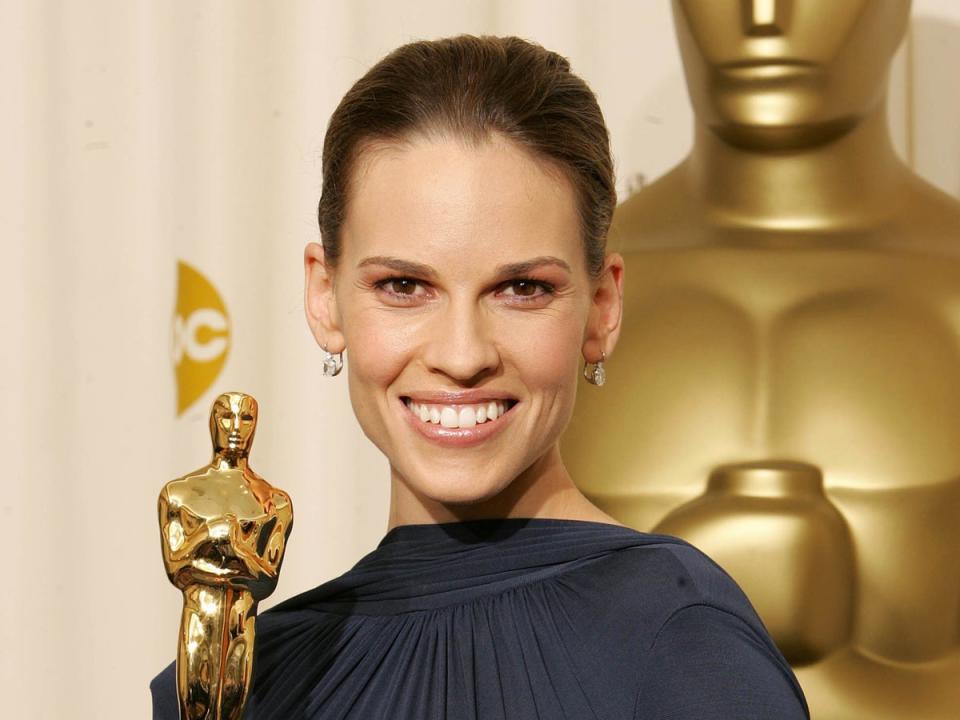
“Having travelled the world so much already at that point, and seen so much diversity, I found that [response] to be shocking,” she says, “especially in people who were a lot older than me. That took a while to come out from under.”
Winning that first Oscar for Boys Don’t Cry opened doors, certainly – but to where, Swank says, people were unsure. “I think everyone was a little confused about what to hire me for next, because they didn’t know my work before, and their first time seeing me was as a very androgynous woman,” she says, “but then my hair grew back, and people were like, ‘Oh, you look like a woman!’ And I’d be like, ‘Well, yeah, I am a woman, and I define myself as a woman.’” Eventually, Swank goes on, “someone gave me another opportunity”, but there was definitely a teething period. “It took a little bit of time of letting people know and see me.”
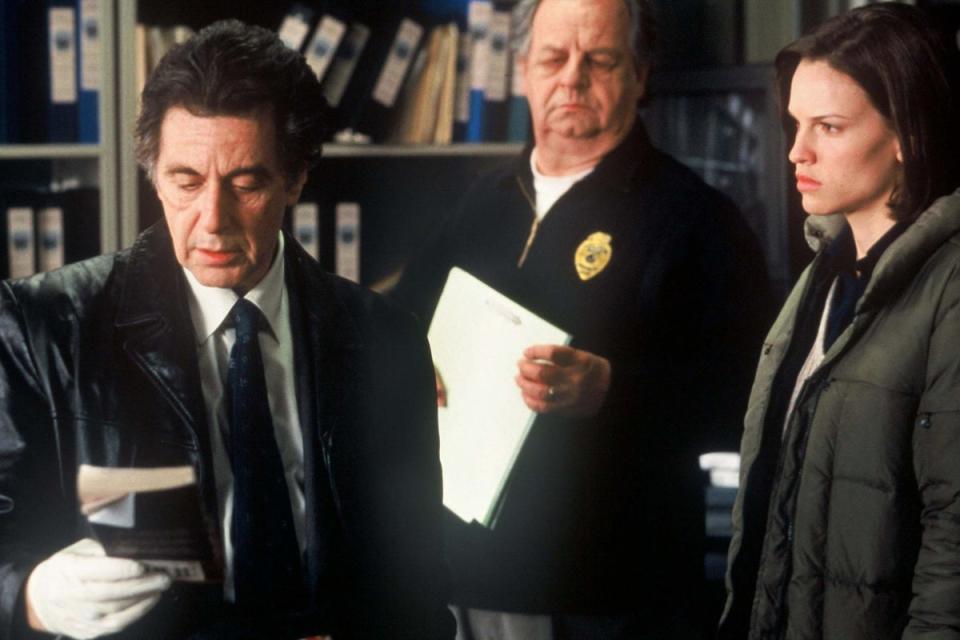
And then Swank disappeared again, into the second defining role of her career so far: Maggie the boxer. For her role as the scrappy fighter with a heart of gold and grit in Million Dollar Baby, Swank worked out for five hours a day and consumed 210g of protein daily, including 60 egg whites. Required to eat every 90 minutes, she would wake up in the middle of the night and down a protein shake. Swank put on 23lb of muscle for the role, sculpting her body into a vessel of lethal leanness.
Swank has said Million Dollar Baby was the hardest thing she’s ever done. And still, she’d do it again. “I love working hard,” she says. “I love it. I’m passionate about hard work and the challenge of transforming and doing something new.” She has spoken before about the appeal of transformation early in her career, when roles were more one-dimensional. Today, though, she demurs. “No, I think what appeals to me is being able to walk in other people’s shoes, and being able to see through the eyes of people who might look different than me,” she says. “It might seem like a big difference, but then you see how connected you are. We’re all here to give and receive love.”
‘Ordinary Angels’ is out in cinemas now

 Yahoo News
Yahoo News 
